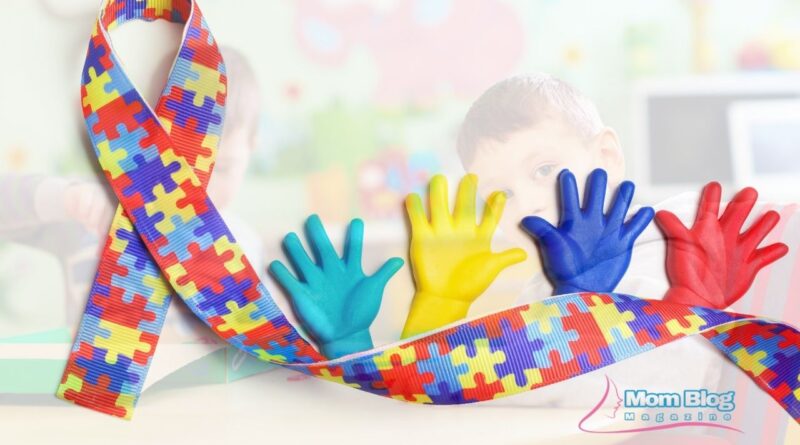What is Autism Spectrum Disorder? Explained
Autism spectrum disorder, also referred to as “ASD” or just “autism,” has been around for a while, but it’s one of the most misunderstood conditions. For the most part, unless you regularly come into contact with a person who is autistic, it might not be relevant to your life.
But when you’re a parent, it’s important to know what autism is, what the symptoms are, and what to do about it if you think your child might be exhibiting them. So here’s a guide to some of the most important things to know about ASD and what to do if you think your child has developed it.
What Autism Actually Is
ASD is a complex developmental disorder that results in challenges with social interaction, communication, and certain types of behavior. People with autism spectrum disorder often interact and learn differently than their peers, but their learning, thinking, and problem-solving abilities can be as strong as anyone else’s.
Because it’s a spectrum disorder, there are many types of autism. A diagnosis of ASD does not determine how intelligent or self-sufficient an individual can be. Some people with autism have incredible intellect and mild symptoms, while others can be severely challenged.
A diagnosis of autism spectrum disorder is now an “umbrella” covering several conditions that used to be diagnosed separately: autistic disorder, pervasive developmental disorder not otherwise specified (PDD-NOS), and Asperger syndrome.
Many people think that autism inherently includes sensory sensitivities, attention disorders, or other problems. However, while those issues often go hand-in-hand, they are not intrinsically linked.
Autism Symptoms
Since ASD can vary so wildly, not all people with autism have a specific set of such symptoms. However, most parents realize before the second birthday of their child that their child is a little different than others. A professional performs a diagnosis of autism spectrum disorder by excluding everything else, but some common immediate symptoms include:
- Not responding to their name by 12 months old
- Not playing “pretend” games (like pretending to “feed” a doll) by 18 months old
- Avoiding eye contact
- Delayed speech and language skills
- Getting upset over minor changes
- Obsessive interests
- Flapping their hands, rocking their body, or spinning in circles
- Avoiding or resisting physical contact
- Repeating words or phrases over and over (also known as “echolalia”)
- Not pointing or responding to pointing
- Not understanding jokes, sarcasm, or teasing
- Has to follow certain routines
The CDC has a long list of potential symptoms if a few of these stand out to you.
What Causes Autism
According to the CDC, an estimated 1 in 54 children have ASD, and it’s about four times as common in boys as it is in girls. But why is any of that the case? The simplest answer is that nobody knows.
There are a few factors that make a child more likely to have autism spectrum disorder. While there isn’t a 100% cause-and-effect link between them, they come up frequently enough that scientists believe there’s a connection. They include:
- A specific set of genes passed down from parents
- Individuals with certain genetic or chromosomal conditions, like fragile X syndrome or tuberous sclerosis
- The prescription drugs valproic acid and thalidomide have taken during pregnancy
- Being born to older parents
There is also some evidence to suggest that a child is most likely to develop ASD just before, during, and immediately after birth. None of this, however, is known for certain by the medical community.
One thing that is known for certain, though, is that vaccines have nothing to do with it. All studies claiming that vaccines cause autism have been disproven, and there is no link to be found between vaccine ingredients and autism.
Autism Treatments
There is no “cure” for autism, but there are some autism support groups, such as the Autistic Self-Advocacy Network. Most of those autism support groups offer plenty of services and therapies to help people with autism lead a self-reliant and fulfilling life.
Early intervention services are available for children from birth to three years old, and they include therapy to help children learn important life skills like walking, talking, and interacting with others. You may not even need a formal ASD diagnosis to take advantage of them if you can prove that your child is at risk.
Afterward, there are plenty of therapies that can help people with ASD, like physical, speech, and occupational therapy. The right combination of professional help will be different for every child, but they’re the most successful way of helping children with autism grow and deal with the world around them.
There are also alternative treatments that show real promise. For example, some studies have found horse riding to be helpful in reducing autism symptoms in children. Therapies like these have less scientific backing, but can be incredibly helpful.
Caring For A Child With Autism
Caring for a child with autism can be different than what you expected from parenthood because their needs can be specific and acute. They may not want you to hug them, and you’ll have to work to build up their tolerance for everyday tasks, like hair brushing.
The most important thing, no matter what type of autism spectrum disorder they have, is to make your child feel safe and cared for, discover the ways in which their ASD manifests and accommodate it, help them find a routine that works for everybody, and be as clear and present as possible when change does occur in their lives.
Also, remember that your child loves you, even if they do not express it, and it is important to show love always.
Being The Parent Of a Child With Autism
A point that is often overlooked is that it’s challenging to be the parent of a child with autism. When you spend your pregnancy and are excited for a lifetime of holding your child, it’s frustrating when they react negatively to just that. But remember a few essentials, and you will find that you can still create a loving and fulfilling relationship with your child.
First, remember that every child has issues at some point or another. Having a child with ASD doesn’t mean that you are a failure as a parent, or that you did anything wrong. Also, understand that just as your child needs help, you’ll need help, too. It’s important to rely on friends, family, and the work of professionals when parenting gets extra-hard.
Some people like to rely on their faith or a higher power. Others prefer more earthly ways of de-stressing. But no matter what you do, be sure to carve out a little time for yourself as well. It’ll increase your mood, patience, and clarity of thought, all of which are necessary for parenting of any kind.
Autism spectrum disorder is an increasingly common condition, and childhood is a critical time for helping children with ASD grow into self-sufficient, capable adults. But when you know what to look for and what to do, you’ll find that there are plenty of resources available, and it’s not nearly as scary a diagnosis as it used to be anymore.




